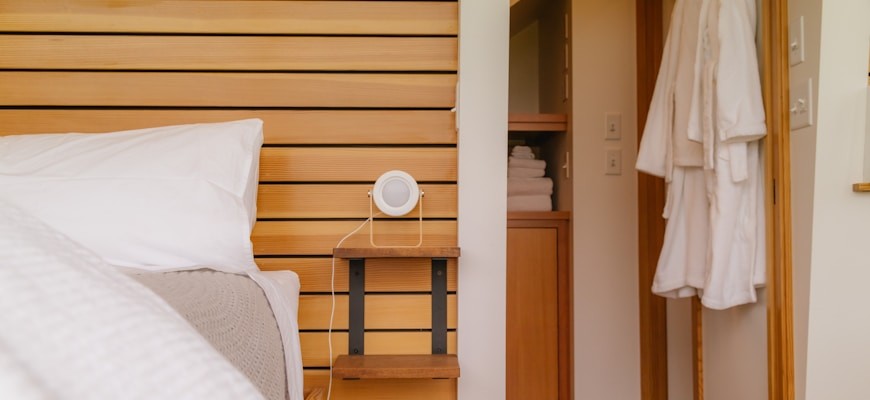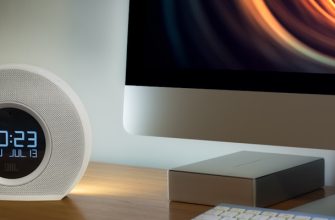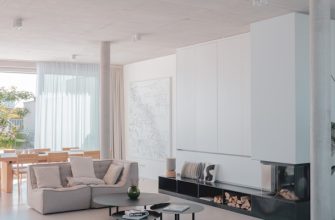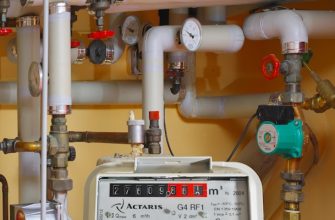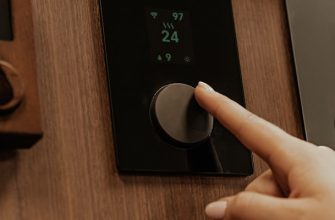- Revolutionizing Home Comfort: The Role of Smart Devices
- Enhancing Security at Home with Automation Technologies
- Streamlining Daily Tasks: The Benefits of Smart Home Integration
- Choosing the Right Smart Devices for Your Living Space
- The Future of Home Automation: Trends and Innovations
- Balancing Convenience and Privacy in a Smart Home Environment
Revolutionizing Home Comfort: The Role of Smart Devices
Smart devices are transforming home environments, enhancing comfort and security in unprecedented ways. The integration of these innovative technologies enables homeowners to create a personalized atmosphere that adapts to their needs and preferences. With an array of smart solutions available, automation is at the forefront of modern living.
One of the most significant advantages of smart devices is their ability to streamline daily routines. For instance, smart thermostats learn household patterns, adjusting temperature settings for optimal comfort while conserving energy. This not only promotes a cozy atmosphere but also leads to substantial savings on energy bills.
Moreover, smart lighting systems provide customizable options that enhance both ambiance and security. Homeowners can control lighting remotely or set schedules, ensuring that lights are always on when needed. This feature deters potential intruders while providing convenience and peace of mind.
- Smart Security Cameras: Offering real-time monitoring, these devices allow homeowners to keep an eye on their properties from anywhere.
- Smart Locks: Providing keyless entry and remote access control, enhancing security without compromising convenience.
- Smart Speakers: Acting as central hubs for controlling various smart home devices, they facilitate hands-free operation and communication.
In addition, smart appliances contribute to an elevated lifestyle by automating mundane tasks. From refrigerators that manage grocery inventories to washing machines that can be controlled via smartphone, these devices significantly enhance convenience in everyday life. The integration of smart technology not only improves efficiency but also allows for greater leisure time for homeowners.
As the trend toward home automation continues to grow, the role of smart devices in enhancing comfort and security cannot be overstated. The ability to monitor and control various aspects of the home environment provides a sense of empowerment, allowing individuals to create a safe and comfortable living space tailored to their lifestyle.
Enhancing Security at Home with Automation Technologies
In today’s world, enhancing security at home has become a priority for many households. Automation technologies are revolutionizing the way people approach home safety, offering innovative solutions that integrate seamlessly into daily life. Smart devices play a crucial role in creating a secure environment, providing peace of mind and convenience.
- Smart Cameras: These devices allow homeowners to monitor their properties in real-time. High-definition video feeds and motion detection capabilities ensure that any unusual activity is promptly captured and reported.
- Smart Locks: Automated locking systems provide enhanced security by allowing remote access control. Homeowners can lock or unlock doors via smartphones, ensuring that their homes remain secure even when they are away.
- Alarm Systems: Integrated alarm systems with smart sensors can detect intrusions and send immediate alerts to homeowners. These systems can be customized to suit individual needs, providing tailored security solutions.
- Smart Lighting: Automated lighting can deter potential intruders by simulating occupancy. Homeowners can program lights to turn on and off at specific times, making it appear as though someone is home.
- Home Automation Hubs: Centralized control systems allow seamless management of all smart devices. This hub can synchronize security features, enabling a cohesive approach to home safety.
Combining these advanced technologies not only improves security but also enhances overall home automation. As more homeowners embrace these smart solutions, the demand for reliable and efficient security systems continues to grow. Investing in automation technologies for home security is not just a trend; it’s a necessary step towards a safer living environment.
Streamlining Daily Tasks: The Benefits of Smart Home Integration
Integrating smart home devices into daily routines significantly enhances comfort and safety within the living environment. The automation of household tasks not only simplifies life but also promotes energy efficiency and security. Smart home systems allow users to manage various functions seamlessly, from lighting to temperature control, all through a centralized platform.
- Enhanced Convenience: Smart home integration allows for the automation of everyday tasks, such as adjusting the thermostat or turning off lights, making life more manageable.
- Improved Security: Smart security systems provide peace of mind by enabling remote monitoring and alerts, ensuring that homes remain safe at all times.
- Energy Efficiency: Smart devices optimize energy consumption, helping to reduce utility bills while promoting environmental sustainability.
- Customizable Schedules: Users can create personalized schedules for devices, ensuring that the home environment adapts to their lifestyle effortlessly.
- Remote Access: The ability to control smart devices from anywhere enhances convenience and security, allowing users to manage their homes while away.
Smart home integration not only streamlines daily tasks but also fosters a more comfortable living space. By utilizing smart technology, homeowners can experience a new level of convenience and assurance, making their home life more enjoyable and secure. The benefits of automating household tasks extend beyond mere convenience; they represent a significant advance in how individuals interact with their living environments.
Choosing the Right Smart Devices for Your Living Space
The selection of the right smart devices plays a crucial role in creating an automated home environment that enhances comfort and security. With a plethora of options available, it is essential to consider various factors before making a decision. These include compatibility, functionality, and user-friendliness, all of which significantly affect the effectiveness of home automation.
- Compatibility: Ensure that the smart devices can communicate with each other and integrate seamlessly with existing systems. Devices that are compatible with popular smart home ecosystems, such as Google Home or Amazon Alexa, simplify the automation process.
- Functionality: Choose devices that offer features catering to specific needs. For instance, smart thermostats can optimize energy consumption, while smart security cameras provide enhanced monitoring capabilities, making them indispensable for safety.
- User-Friendliness: Opt for devices with intuitive interfaces and easy installation processes. The best smart gadgets should offer straightforward setup instructions and accessible mobile applications, allowing users to manage home automation without technical expertise.
Additionally, it is advisable to consider the scalability of the devices. Investing in smart gadgets that can be easily expanded or upgraded ensures the longevity of the home automation system. This adaptability makes it feasible to incorporate new technologies as they emerge, maintaining an up-to-date smart living space.
In conclusion, the thoughtful selection of smart devices is fundamental to the successful automation of domestic environments. By focusing on compatibility, functionality, user-friendliness, and scalability, homeowners can create a harmonious and efficient living space that prioritizes comfort and security.
The Future of Home Automation: Trends and Innovations
As the landscape of home automation continues to evolve, innovative technologies are emerging to enhance both comfort and security. The future of smart devices is promising, with advancements that integrate artificial intelligence, machine learning, and IoT (Internet of Things) capabilities.
- Integration of AI: Smart devices are becoming increasingly intelligent, enabling them to learn user preferences and automate tasks more efficiently. This results in enhanced energy management, personalized experiences, and improved security features.
- Seamless Connectivity: Future home automation systems will offer seamless connectivity between various devices, allowing for centralized control. This will enable users to monitor and manage their homes from anywhere, using smartphones or voice commands.
- Enhanced Security Features: With the rise of home automation, security devices are becoming more sophisticated. Smart locks, surveillance cameras, and alarm systems are now equipped with advanced features like remote access, motion detection, and real-time alerts.
- Energy Efficiency: The trend towards sustainability is influencing the development of smart home devices. Innovations such as smart thermostats and energy monitoring systems help reduce energy consumption, contributing to a greener future.
- Interoperability: Future trends in home automation emphasize the importance of interoperability between devices from different manufacturers. This will allow users to create a fully integrated smart home ecosystem that can be tailored to individual needs.
The ongoing advancements in home automation technology promise to make living spaces not only more comfortable but also significantly safer. As smart devices become more intuitive and interconnected, homeowners will benefit from enhanced control over their environments, leading to a harmonious blend of convenience and peace of mind.
Balancing Convenience and Privacy in a Smart Home Environment
In the modern age of home automation, the integration of smart devices has transformed the way people experience comfort and security. However, this increased convenience often raises significant concerns regarding privacy. Striking a balance between these two essential aspects is crucial for homeowners looking to enhance their living environments.
Smart home technology offers various benefits, including automated lighting, climate control, and security systems. These innovations contribute to a more comfortable lifestyle by allowing users to tailor their environments to their preferences. For instance, smart thermostats can learn user habits and adjust temperatures accordingly, while smart lighting can be programmed for different moods or times of day.
Nevertheless, the convenience provided by smart devices can come at the cost of privacy. Many smart home systems require data collection to function effectively, leading to potential vulnerabilities. Users must be aware of how their data is being utilized and stored. This awareness can help individuals take necessary precautions, such as updating settings, utilizing encryption, and choosing devices from reputable manufacturers.
- Understand data privacy policies of smart devices.
- Regularly update device software to patch security vulnerabilities.
- Utilize strong, unique passwords for all smart home devices.
- Limit the sharing of personal information with smart home applications.
- Employ network security measures, such as firewalls and VPNs.
By implementing these strategies, homeowners can enjoy the full range of benefits offered by smart home technology while minimizing privacy risks. The fusion of convenience and privacy is not only achievable but essential for a secure and comfortable living environment. As smart home solutions continue to evolve, maintaining this balance will remain a priority for users seeking to enhance their domestic experience.
